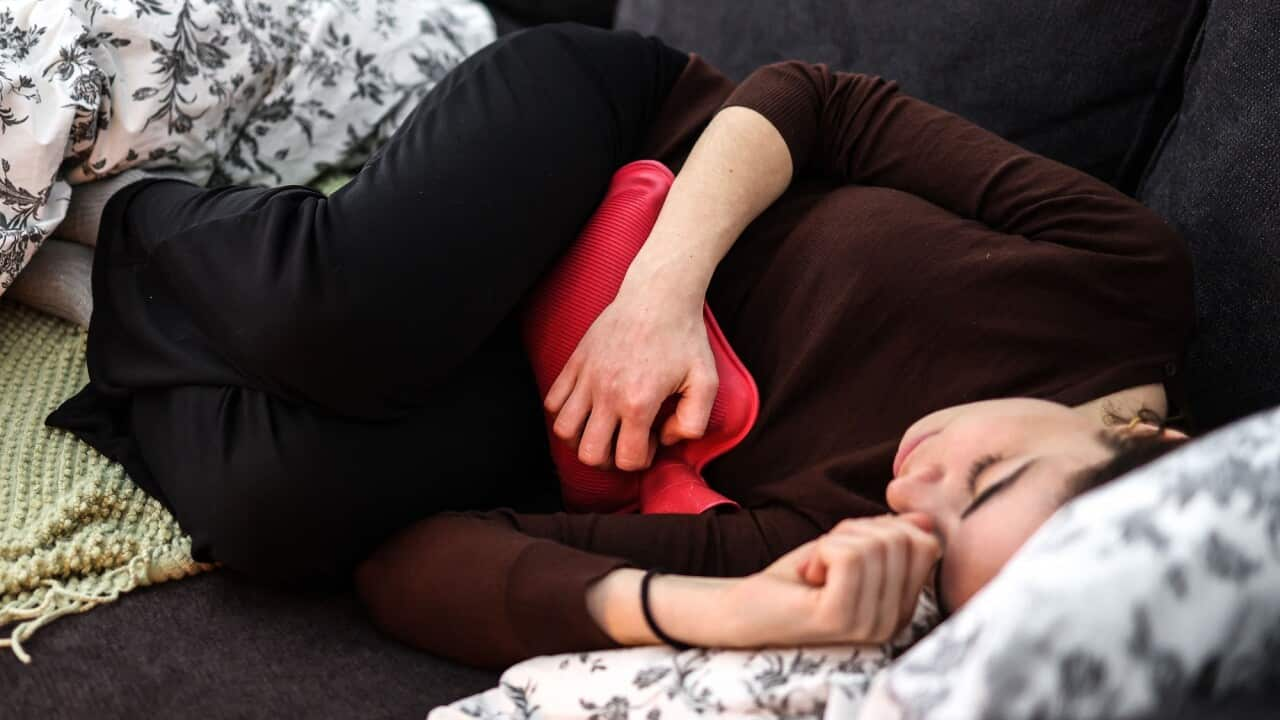Stream free On Demand

Endometriosis
episode • Insight • Current Affairs • 53m
episode • Insight • Current Affairs • 53m
"Unfortunately, this is part of being a woman," my GP said.
There are many things I don’t remember from my early or late teens, but for whatever reason I remember many milestones of my endometriosis journey.
When I went to my local doctor for the first time after experiencing unbearable pain, not many practitioners knew about 'endo', and more often than not I was told what I was experiencing was normal.
The first time I really felt something wasn't right with my body, was a few years after my period started towards the end of school.
I was nearly 17, and my periods were extremely painful.
Hot water bottles and paracetamol were the only aids I had available. One particular day, I was at the local shopping centre with my boyfriend and some friends, when out of nowhere I collapsed.
I'd just started my cycle and I had a sickly feeling. Then came the excruciating stabbing pains across the tops of my legs, pelvis and lower back.
Before I knew it, I'd blacked out and was on the ground.
A small crowd surrounded me and shortly after I was rushed to the hospital, where they took X-rays and dosed me with very strong painkillers. I was told I needed an urgent colonoscopy and to see my GP.
I thought to myself, "What the heck is a colonoscopy?" Google wasn’t around then, so I had no idea what on earth I was in for.
A few weeks later, my periods were back – a week sooner than usual.
How one GP changed my life
The bleeding, blood clots and pain were getting worse. I went to see a new GP, who was my boyfriend’s family GP, and I am forever grateful I saw her.
She immediately diagnosed me with dysmenorrhea – severe and frequent menstrual cramps – and gave me a referral to a gynaecologist.
I was about to turn 19, and it was my second specialist in less than a year.
I was terrified.
Why were all my friends out doing whatever they wanted, and all my spare time and money was spent on specialists? It didn't seem fair to me, but I dealt with it as best I could, despite being so young and naive.
A formal diagnosis but a lot of unknowns
In 1995, I had my first ever laparoscopy, a procedure that involves keyhole surgery to inspect the inside of my pelvic area. As I came out of recovery, I was told I had severe endometriosis.
Nobody I knew had even heard of the condition and, while my specialist was professional and empathetic and told me as much as he could about the condition, even he admitted that there was not much information as to how to treat it.
He told me what he knew: that it would likely come back, that I would continue to have pain and discomfort and, most alarmingly for me, that I would struggle to conceive.
I never had enough sick leave
After being formally diagnosed, I moved for work. I found a role closer to home and in a new area. However, it quickly became apparent that management wasn't equipped to deal with my illness.
Whenever I had to take sick leave, I provided a certificate, but I used up my two weeks of sick leave in a matter of months.
I came back to work after a few days off and got called into a meeting with my team leader at the time. I thought I had a good relationship with her and wasn’t expecting what came next.
I was handed a letter signed by the management team – all of whom were male – requesting that I be examined by a Commonwealth Medical Officer. Based on the outcome, a discussion about my ability to do my job would be had.
Facing a lot of self-blame, I reminded myself that I was good at my job and I wasn't going to let anything get in the way of that – the world just needed to understand my disease.
I wasn't going to give up.
From pain to the relief of being understood
I went to my appointment armed with all my medical records, copies of my review from work, leave history, a letter from my GP and anything else I thought would be needed.
Included in this compilation of everything related to my endometriosis was the report from my laparoscopy, including photos taken during the procedure.
The doctor looked at me after I presented him with everything and I'll never forget the words that came next.
“Rebecca, I am not sure what they want me to do here. Conduct another laparoscopy? Conduct an internal examination? I will not be doing that as it is obvious to me you have a very painful and uncomfortable illness that isn’t going to go away anytime soon," he said.
"However I don’t see any issue with you being able to carry out your required work and have the time off when needed.”
I burst into tears. I was so relieved.
What a feeling it was to finally be seen, heard and understood!
Some time went by, and I was requested to join a meeting with my team leader and HR as the Commonwealth Medical Officer's report had come back.
It was clearly outlined in that report that I had severe endometriosis.
All my sick leave was warranted, with proof of absence provided and, most importantly, it concluded that there was no issue with me being able to conduct the role I was employed to do – sick leave was there to be used when someone was unwell.
I was to be supported and encouraged to use that sick leave if needed.
Looking back, I'm so glad I showed up for myself and, fortunately, I went on to work for this organisation for 18 years.

Rebecca with her two sons, Alex and Chris. She says it was vital to teach them about endometriosis, as it impacted their lives as well as her own. Source: Supplied
When they said I couldn't, I proved them wrong
We went through many changes in the business. At one stage, a colleague of mine told me there was no point in me applying for a promotion as my disease would hold me back.
I got promoted, more than once.
I defied the odds and went on to have two sons. Both are amazing young men who now have a thorough knowledge of endometriosis because they watched me live with it.
They saw me at my worst, and they were my heat pack couriers when I needed them.
Endo didn't just rule my life and knock me about, it impacted everyone around me.
It is a physically, mentally, emotionally, and financially draining chronic condition – but it doesn't have to get in the way of you achieving your dreams.
In total, I had 11 laparoscopies, endless pelvic ultrasounds, multiple ovarian cysts bursting, and spent years and years taking strong pain relief (just to get through a day!). In 2018, I had a total hysterectomy, my only option to be able to live with reduced pain.
I learnt incredibly early on that, if I wasn’t open and honest about what I was going through, then who would be?
It is a very lonely and misunderstood illness – but it doesn't have to be if we speak up.
And for more stories head to – a new podcast series from SBS, hosted by Kumi Taguchi. From sex and relationships to health, wealth, and grief Insightful offers deeper dives into the lives and first person stories of former guests from the acclaimed TV show, Insight.













